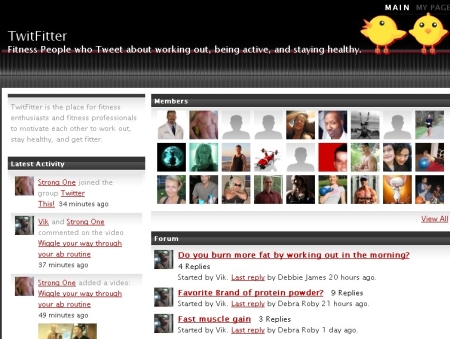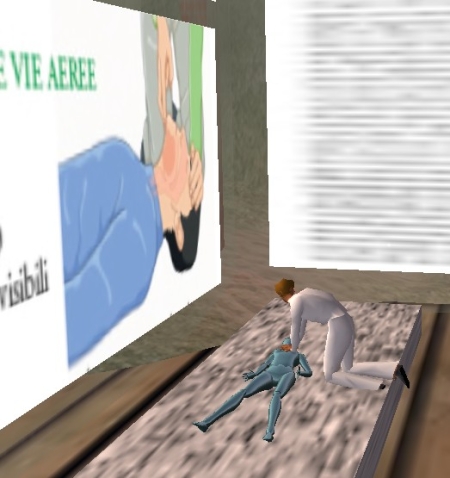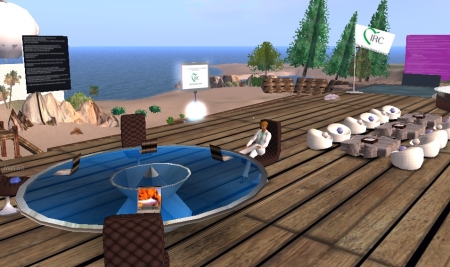The DNA Network |
| Stock Navigenics Patient Response [Think Gene] Posted: 07 Dec 2008 05:52 PM CST For your own use —at your practice, institution, or otherwise. Regarding Navigenics and our genetic medical services, please note the following excepts from the Navigenics Terms and Conditions and the Navigenics Form to which you agreed while purchasing your Navigenics test: Navigenics Terms and Conditions
Navigenics Informed Consent
Thus, to use Navigenics while providing health care would a violation of Navigenics Terms and Conditions as the test is not “to be used for medical diagnosis or treatment, for any individual problem.” Further, The Terms and Conditions specify that on the basis of the Navigenics test, one should not ignore or delay any existing medical advice, nor should one interpret the results to recommend any other action. Thus, for us to counsel otherwise would also be a violation of the Terms and Conditions, and it would be unethical since you agreed not to change your behavior on the basis of Navigenics. Finally, as stated in Navigenics Informed Consent, “information about clinical significance is not yet available for most of [the Navigenics test].” Medical practices like ours are ethically and legally obligated not to recommend or apply any test or that is not known to be clinically significant while providing health care. Navigenics does state that its test results are “merely an indication that you may be genetically predisposed to that condition and may wish to consider further independent testing, consult your physician or pursue genetic counseling.” However, any medical advice or genetic counseling services that we would provide for a patient with the Navigenics test would be the same as for a patient without the Navigenics test. We would be honored to be caring for you and your health. However, we are unable to use the Navigenics test in our medical practice. We sincerely apologize on behalf of the medical community if you were led to believe otherwise. |
| war on Xmas – the Atheist Anthem Competition [the skeptical alchemist] Posted: 07 Dec 2008 04:24 PM CST Not that atheists are declaring war on Xmas, but you can imagine the reaction of the crazies if they only found out... ...that Q Transmissions, a weekly skeptical call-in talk show in Edmonton, Alberta, Canada, has started a singing contest for a new atheist anthem! You can find the music and lyrics on their website, and send them your best rendition of the anthem. So keep those submissions flowing, and your atheism glowing! View blog reactions |
| TwitFitter: Twit for Your Health [ScienceRoll] Posted: 07 Dec 2008 02:35 PM CST One of the most interesting or funniest ideas of the week is TwitFitter, a place for fitness enthusiasts and fitness professionals to motivate each other to work out, stay healthy, and get fitter.
Have you got any experience with it? Anyway, nowadays Twitter is really on fire. I started to use Tweetdeck to track my twits and I just found a post on How to got to web 2.0 mentioning two practical examples why Twitter can be useful for medical professionals.
 |
| Web 2.0 timeline and future: Slideshow [ScienceRoll] Posted: 07 Dec 2008 02:26 PM CST Richard Akerman from Science Library Pad published this interesting slideshow about history leading up to Web 2.0, characteristics of Web 2.0, Twitter, Facebook and FriendFeed.  |
| Emergency Training in Second Life [ScienceRoll] Posted: 07 Dec 2008 02:16 PM CST Everybody must know what basic life support means. This virtual tool may help you to learn more about such an important procedure. Now I’ve got a huge list of useful Second Life medical sites and islands on Webicina, but here is the newest addition. The Italian Resuscitation Council (IRC) is starting to explore the possibilities to use Second Life like an environment for training. To teleport there, click here.
Excerpt from their mission statement:
It’s also possible to organize meetings at this great place.  |
| Cooking & Science with Ferran Adria: Webcast Tuesday Dec 9th 6:30PM [The Daily Transcript] Posted: 07 Dec 2008 09:54 AM CST Here is some info: The world acclaimed chef of El Bulli, Ferran Adria, will discuss the fascinating relationship between modern science and modern cuisine. If you are in the Boston Area here's what you need to know: Cooking & Science with Ferran Adrià: A Conversation on Creativity If you're not in the Boston Area, or simply can't make it, you can watch the lecture live by following this link. Read the comments on this post... |
| Sherpa on Vacation [The Gene Sherpa: Personalized Medicine and You] Posted: 07 Dec 2008 09:39 AM CST |
| Dioxins Before Swine [Sciencebase Science Blog] Posted: 07 Dec 2008 07:02 AM CST
So, what are dioxins and should we be worried about them? Dioxins are organic compounds formed when a huge range of materials, particularly chlorinated polymers (PVC plastics) burn and in some industrial processes. They are ubiquitous in the environment and became the focus of environmental activism because of their reputation for being among the most toxic compounds known. Colloquially “dioxin” is talked of as if it were a single compound rather than a class of compounds, but the most usual reference is to the chlorine-containing compound 2,3,6,7-tetrachlorodibenzodioxin. Dioxins should not be confused with the compound 1,2-dioxin and 1,4-dioxin, which are heterocyclic, organic, antiaromatic compounds. 2,3,6,7-Tetrachlorodibenzodioxin can have some nasty effects such as irritation to the eyes, allergic dermatitis, chloracne, porphyria; gastrointestinal disturbance, possible reproductive, teratogenic effects, liver, kidney damage, haemorrhage, and occupational carcinogenicity. But, does that long list of problems mean anyone eating any of the food products from Ireland - bacon, ham, sausages, white pudding and pizzas with ham toppings - were or are in any danger. “The UK’s Food Standards Agency said it did not believe at this stage that UK consumers faced any ’significant risk’,” reports the BBC. Seems like fair comment, only serious chronic exposure to low levels of dioxins or acute high level exposure are of real concern. No member of the public has ever died from dioxin poisoning, despite the fact that for several decades industry has been inadvertently releasing these materials into the environment as impurities in hundreds of products and that countless burning materials release the same supposedly deadly compounds across the globe continuously. Occupational exposure has led to probably at most four deaths from industrial accidents involving release of dioxins, according to John Emsley writing in The Consumer’s Good Chemical Guide.
Don’t forget to grab the Sciencebase email newsletter or newsfeed for a more complete update on the porcine dioxin story soon. |
| What is Science 2.0? HHMI's Take [adaptivecomplexity's blog] Posted: 06 Dec 2008 06:34 PM CST Via Larry at Sandwalk, the Howard Hughes Medical Institute is excited about Facebook, YouTube, and Blogs. What does this have to do with science? Like Larry, I'm still skeptical of what impact this has on what I do in the lab: |
| You are subscribed to email updates from The DNA Network To stop receiving these emails, you may unsubscribe now. | Email Delivery powered by FeedBurner |
| Inbox too full? | |
| If you prefer to unsubscribe via postal mail, write to: The DNA Network, c/o FeedBurner, 20 W Kinzie, 9th Floor, Chicago IL USA 60610 | |



No comments:
Post a Comment